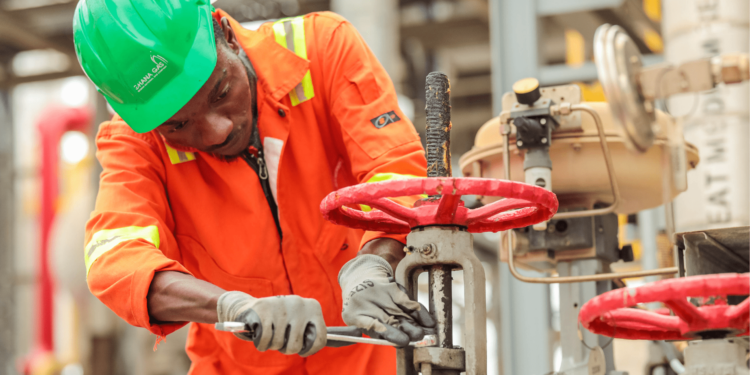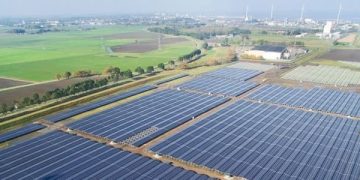Use of Local Engineers by Ghana Gas Results in $250 Million Savings for Company
The Ghana National Gas Company Limited (GNGCL) has saved over $250 million by relying solely on the expertise of Ghanaian engineers and technicians to operate and maintain its gas processing plant.
This cost-saving strategy was launched in April 2017, when GNGCL took over operational control from the Chinese company Sinopec resulting in savings of three million dollars per month.
Ghana Gas’s Chief Executive Officer (CEO), Dr Ben K. D. Asante, disclosed this to the media on Sunday in Accra.
He stated that since 2017, the company has demonstrated its commitment to fostering local expertise and advancing national development.
“In April 2017, Ghana Gas fully indigenised the operations and maintenance of its Gas Processing Plant (GPP) and associated pipelines. This initiative has also led to the creation of about 1000 jobs, including both permanent and contract positions,” he said.
He mentioned that the company’s success extends to maintenance and certification milestones.
“Post-indigenisation, we have completed three major shutdowns and maintenance projects and achieved ISO 45001: 2018 certification for Occupational Health and Safety Management Systems,” he added.
He hinted that Ghana Gas was also advancing towards ISO 14001 certification for environmental management systems.
On infrastructure development, Dr Ben Asante noted that Ghana Gas Limited Company’s supply network has been pivotal for industrial growth and power generation with industrial clients such as Wangkang Ceramic, Sentuo Refinery and Twyford/Keda Ceramic.
He stated, “We enable the supply of gas for industrial heating and power, benefiting both Eastern and Western industrial enclaves.”
The CEO mentioned that constructing the Anokyi Mainline Compressor Station has increased compression capacity and ensured efficient gas transmission from Atuabo to Kumasi and beyond.
“This project enhances operational flexibility and ensures a steady power supply to Ghanaian households and industries,” he added.
He highlighted the contribution of the 10-kilometer gas pipeline project from Takoradi Distribution Station to the Karpowership at Sekondi Naval Base contributed to Ghana’s electricity supply, meeting 20% of the nation’s energy requirements.
“This infrastructure supports 26% of Ghana’s electricity needs, reducing fuel costs significantly,” he added.








